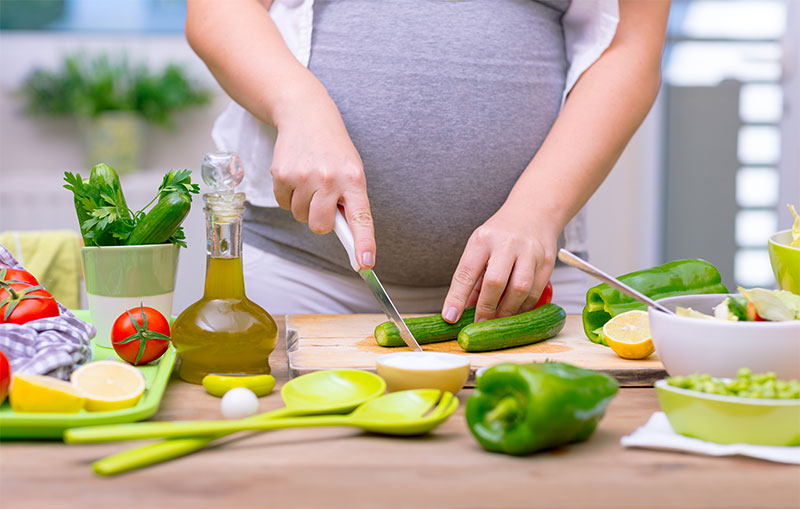Should I eat for two during pregnancy?
During pregnancy, dietary needs change and it is essential to maintain a healthy diet in order to promote the best possible development of the fetus, while preserving the health status of the pregnant woman. So, do we really have to eat for two to make sure the pregnancy runs smoothly?
In fact, in terms of the amount of food to be ingested, it is not true that a pregnant woman must eat twice as much. In the first trimester of pregnancy, the embryo forms and develops into fetuses. This requires a minimum of energy and the energy needs of the pregnant woman are similar to those before pregnancy. However, the expectant mother may feel more tired and nausea is often present at this stage of pregnancy.
Some tips to reduce nausea
- Before getting out of bed, eat a few crackers or dry bread
- Get out of bed slowly and don’t make sudden movements
- Try not to drink and eat at the same time; Prefer water or other beverages between meals instead.
- Avoid certain foods that are more difficult to digest, such as foods that are too fatty or spicy;
- Don’t spend long hours without eating and try to eat small meals at 2 to 3 o’clock
In the second trimester, the baby’s growth increases rapidly. Nausea often subsides during this period of pregnancy, but in approximately 40% of cases, these symptoms persist. So the tips mentioned above to minimize nausea can be continued. In addition, the pregnant woman’s energy needs increase by 340 calories per day; which is equivalent to a glass of milk and a slice of bread with peanut butter.
In the third trimester, the baby grows at a crazy rate and the development of the lungs and brain continues. Energy requirements increase by an additional 450 calories per day, which is equivalent to a fruit or a glass of milk, a 3 oz serving of meat and an additional serving of starch (bread, pasta, potato, quinoa, rice, etc.).
As the baby grows, the pregnant woman may have difficulty eating enough at a meal. Thus, spreading your food intake throughout the day, focusing on small meals every 2-3 hours, could be a winning strategy to meet the nutritional needs of the expectant mother and baby.
On the other hand, in terms of food quality, it is undeniable that you have to eat better for two! It is important to pay special attention to proteins, essential fatty acids, folates, iron, vitamin D, calcium, vitamin B12 and dietary fibre. The nutritional status of pregnant women before and during pregnancy can reduce the risk of pregnancy complications, neonatal malformations and chronic diseases in babies.
If you want to learn more about what to eat once you give birth and breastfeed, read this article on the subject here. Eating well while breastfeeding.




